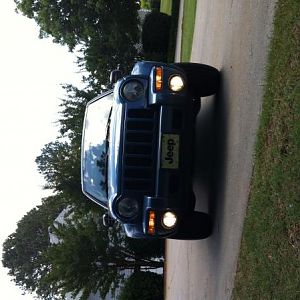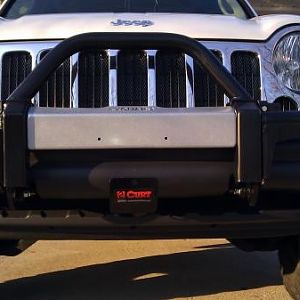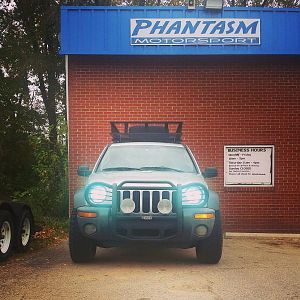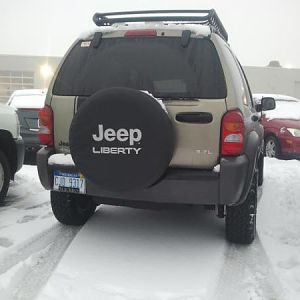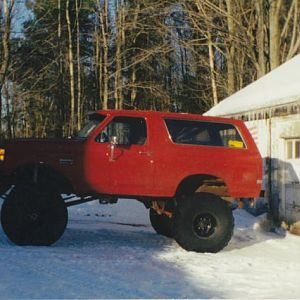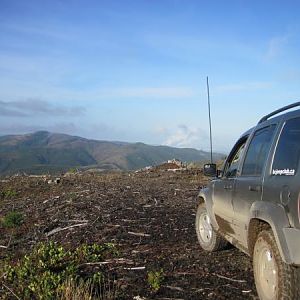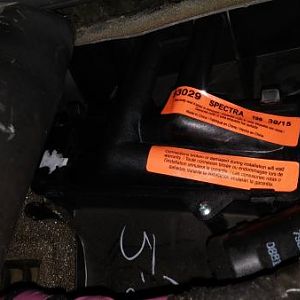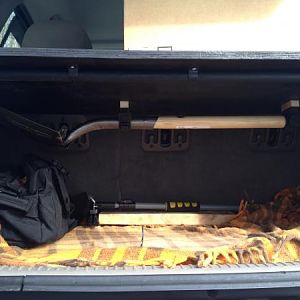If an injector fails, it simply stops spraying fuel into the cylinder. If all other things are working normally, this causes a dry misfire. The cylinder still makes compression, the spark event still fires off.. just there is nothing to ignite so you lose power and have a dead miss in that cyl.
Fuel wont fill the cylinder unless the valves stop opening, the injector continues to spray, the spark plug stops firing, and eventually (not long, like seconds later) the amount of fuel in the cylinder will increase the compression of the cylinder so much- because remember, it can't pump the air inside out, because valves are stuck shut for some reason and liquid doesn't compress like air does- that the compression will be too high for the design of the parts and you'll break something catastrophically. Hole in the piston, broken connecting rod, hole out the side of the block level stuff.
If a rocker (or valve spring/lifter) malfs, it will not affect the injector- normally. Now we get into camshaft position sensors and PCM functions. The camshaft position sensor tells the computer where each valve is in the cycle, open or closed and sometimes by how much. It uses that information to know when to fire the injector, and sometimes for how long. Some vehicles fire injectors one at a time along with the 4-cycle process, this is what you've probably heard or seen as "sequential fuel-injection". Others fire the injectors in pairs or some other combination, these are "batch-fired fuel injection" systems. They waste more fuel and are not used much anymore because it is inefficient.
But normally, in the way that you are thinking, a malf'd rocker or spring is not going to make the injector stop firing.
A collapsed lifter will cause a sound. Usually a loud and very noticeable TICK, plus the sound of the misfire itself, which admittedly sometimes sounds like a knock. Pushrod against a bearing-? I don't follow.. if an engine uses pushrods (ours do not), the pushrods ride on top of the lifters and then gets seated at the top under a small round depression in the rocker arm itself. Engine oil provides the "bearing surface". But this does not apply to the 3.7L Pentastar v6.
Good luck hunting this down. If it were mine, I'd re-do the compression test and see what numbers you get.. being sure to perform it dry first, then again wet. See how and if the numbers change. If you can confirm that you have one specific cylinder with low(er) compression, that gives you something to focus your attention to. If the wet compression test numbers are same or similar for that cylinder.. that would indicate to met hat the cylinder rings are not the issue, and that something else is causing a leak of compression in that cyl. Like a valve spring that won't seat and close fully..
In that case, hope for a busted valve spring or collapsed lifter. If the valve seat broke... eek. I've seen that destroy cylinder heads (Some Ford 4 cylinders I've owned were notorious for that).
What Jason said.
The only thing I would add is to check the spark plug for operation. There is a possibility that the wiring to that cylinder coil is faulty, although that should throw a code.
I forgot that those motors are overhead cam and do not have lifters.
Right, and since I'm regurgitating information today...
That means that instead of the camshaft lobes pushing up on the lifter and in turn moving the rocker arm on a pivot, with the spring to push the other side and close it.. the camshaft lobes push DOWN onto the lifters- or hydraulic buckets of a sort, and those act on the valve stem directly. This is more efficient because you aren't changing direction a couple times, down is down, not up then down. Smoother, different power band than In-block camshafts.
#1-I've had several dozen 3.7/4.7's with bad cats that caused misfires even when all cylinders properly worked and had good compression.You can not "visually" inspect cats for proper operation,they work or they don't.
#2- if the O2 sensors where not NTK or at least Denso O2 sensors you will need to replace them again,this engine(and all Chrysler's) do not like Bosch O2 sensors.
Thank you SO much,
JasonJ, ElCheapo, and
tjkj2002!! This is super helpful, guys. Learning so much. I'm definitely deep into the rabbit hole now haha.
It wasn't until last week that I learned what I was told by the shop was all based on speculation, nothing was actually looked at beyond external. I'm not sure the valve cover was even removed. (Because a simple compression test is done with it on, right?) So, I wanted to wait until I had it towed out from there before replying to everyone.
What they "thought what was going on" was that 1) the fuel injector failed and stayed open, causing fuel to build up on top of that cylinder, creating a vapor lock. And that then 2) a rod bent or got tweaked and is now up against a bearing. (I may have confused connecting rod against bearing with pushrod against bearing in my other post.) That what they think happened happens in 5% of vehicles and race cars all the time. The theory about mine was based on the mechanic's track camaro that had a carb failure dump fuel onto cyl.
And from what you're saying,
JasonJ, injector failure as a primary cause of fuel build up wouldn't be possible. That in that case it'd be a valve issue, correct?
I was able to pull codes from the dash. P0201 and P0302. The cat codes might have been cleared. What I learned about P0201 goes back to what you said,
ELCheapo, about the injector wiring. All I could find from searches was about the 4.0 I-6 tho, but that the harness can rub against a stud/bolt and cause these two codes, short circuits, plus the symptoms I had at breakdown. I'm not sure if ours have the same harness and stud/bolt location design, but it's def worth considering. Either way, def looking at the wiring in general. And also the PCM issue as another possibility like
Billwill mentioned a few posts ago.
As for the cats,
tjkj2002, I was told by that shop the cats "looked fine." And that a scope was used to see them, altho the front or top maybe(?) isn't visible with the scope. I didn't know that doesn't mean anything until your post, so thank you. I also learned from searches since that bad cats can cause sounds, too, is that correct? The cats are original on mine. Yes, thanks, that shop probably put in Bosch o2 sensors. I'll have the sensors changed to the ones our engines like.
I appreciate all the advice and honesty and will get a second opinion for sure.
Oh, and I saw from the PCV thread here that the 02-06 OE design is weak. The PCV valve and breather hoses were cracked on mine according to that shop. So if cracks happened, that makes me think pressure built. If pressure built, there could be a clog. And a clogged PCV could cause a valve to stick, right? So there's another possibility, maybe?
Through all this and everyone's help, I'm seriously considering getting tools and doing what work I can do myself. This forum is so inspirational that way. All of you have been a huge reason I haven't given up, despite that shop adding $1K to the estimate per conversation about a reman r&r, pushing a junkyard motor swap, and telling me to just get something else.
So, thank you everyone!!


